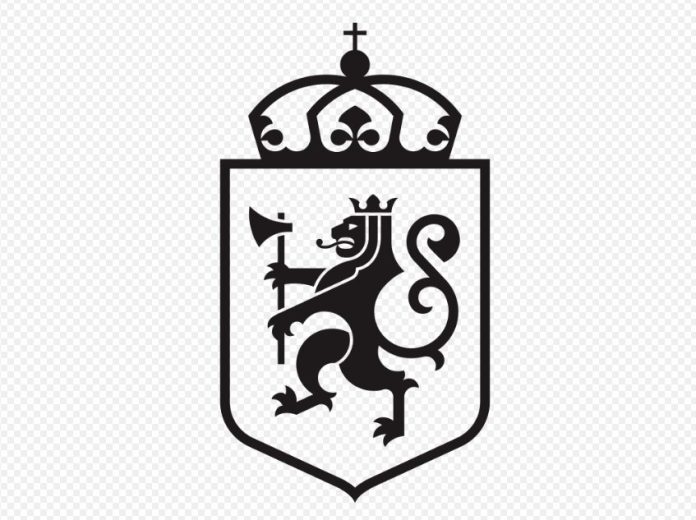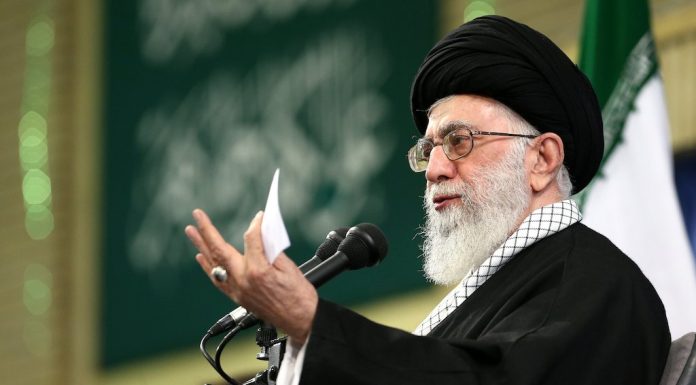
By Prof. Dr Dr h.c. Carl Baudenbacher, Former President of the EFTA Court, Partner Baudenbacher Kvernberg, Zurich/Oslo/Stavanger/Brussels and Visiting Professor at LSE
25 years of violation of the EEA Agreement
For decades, the Norwegian welfare authority NAV made benefits of all kinds dependent on the physical presence of the entitled person on Norwegian soil. Anyone travelling abroad without permission was found to be in breach of Norwegian law. A Polish man was denied permission to travel home for his wife’s funeral, and a Greek visiting his sick mother in Greece was deported after decades in Norway. People who left the country without authorisation were labelled as fraudsters, benefits owed were refused or mercilessly reclaimed, even if no funds were available. In total, there are potentially around 100,000 NAV victims from the 3 EEA/EFTA States, the 27 EU-States and the UK. More than 80 innocent people were sentenced to prison by Norwegian courts. Some were incarcerated together with murderers, rapists and paedophiles; degrading treatment was the rule. There were even suicides among those affected by NAV’s infringements of the law. The weakest and most vulnerable in society were directly affected, but such a systemic collapse is also detrimental to the European economy.
Norway has been a Contracting Party to the European Economic Area since 1 January 1994. The EEA Agreement takes precedence over national law. In addition to the four fundamental freedoms, the EEA acquis included the relevant case law of the Court of Justice of the EU. On 31 January 1984, ten years before the EEA Agreement came into force, the ECJ recognised the freedom to receive services in other EEA countries in Cases C-286/82 and C-26/83 Luisi and Carbone. Tourist services are also protected.
big scandal in norway. it's been discovered that the Labour and Welfare Administration (NAV) has been misinterpreting the law, accusing some social security recipients who spent extended periods in e.u. countries of fraud, ofc overlooking free movement. 🤦♀️ https://t.co/zvu3DcqKJL
— hbd chick (@hbdchick) October 31, 2019
A biased committee of enquiry
In view of the overwhelming evidence, the Norwegian government could not deny the “judicially authorised breach of law” (Süddeutsche Zeitung). The top politicians temporarily covered themselves in sackcloth and ashes, and Prime Minister Erna Solberg promised wholeheartedly that every stone would be turned over. The hands of the worst-treated NAV victims were shaken in front of TV cameras during prime time, and then work began on the defence strategy. The NAV scandal became public on 28 October 2019. Towards the end of the year, the government announced that it would set up a committee of enquiry. Professor Finn Arnesen from the Faculty of Law at the University of Oslo was proposed as chairman. However, Arnesen was immediately accused of bias. In fact, Mr Arnesen is a close friend of the current head of the Office of the State Attorney (“Regjeringsadvokaten”), Fredrik Sejersted. The Norwegian State Attorney is the government’s in-house legal department attached to the Prime Minister’s Office. He also advised the government on all matters relating to NAV. And since EEA law has been systematically violated, he was and is in a conflict of interest.
Mr Arnesen and Mr Sejersted were successively directors of the Centre for European Law at the University of Oslo, at the time something of an anti-EEA fortress. Both systematically wrote against EEA law and constantly attacked the institutions of the EFTA pillar, the EFTA Surveillance Authority and the EFTA Court. In 2016, Mr Sejersted (as the State Attorney!) publicly lobbied for Mr Arnesen to become the Norwegian judge of the EFTA Court. In December 2019, when the debate about Mr Arnesen’s bias as chairman of the NAV Committee began, Mr Sejersted came to his rescue and exhoriated two professors from the University of Oslo in the largest daily newspaper Aftenposten.
Most importantly, in 2012 Mr Arnesen, as an acting justice in a five-member chamber of the Supreme Court, voted in favour of the criminal conviction of a man who spent three weeks in Gran Canaria in December 2009 while receiving sickness benefits from NAV. The man had also been convicted of other criminal offences. The sentence for the three weeks in Gran Canaria would have been 90 days in prison.
The Minister of Labour and Social Affairs had the question of Mr Arnesen’s bias examined by the legal department of the Ministry of Justice. The department claimed that there are few specialists in EEA law in Norway, which is demonstrably false. The Ministry of Justice concluded that there was “partial” bias in relation to the Gran Canaria case and another similar case from 2017. Otherwise, Mr Arnesen was said to be suitable to chair the committee. I have never seen anything like this in my life. The Minister of Labour followed the Ministry of Justice’s recommendation. It can be assumed that she was advised by the State Attorney. The impartiality of other members of the committee was also questionable.
On 4 August 2020, in the middle of the summer holidays, the Arnesen Committee presented its report to the public and gave it the name “Blind Zones”. This was obviously intended to suggest that, although things had gone wrong, no one was to blame. In fact, the committee found that NAV had violated the freedom to receive services since 1994. However, when asked at the press conference at the presentation of his report whether the government had acted culpably, i.e. intentionally or with gross negligence, Arnesen replied that the question of ultimate responsibility was “not part of our mandate. We did not even evaluate it”. The committee had focussed on what had gone wrong. “What we found was a worrying lack of communication both about the rules and their meaning and about the way in which the rules were implemented”. Nevertheless, the committee noted en passant that it had found nothing to suggest that the government was at fault. A mere favour to the government.
Great press conference today in Oslo announcing that @C_Baudenbacher,@MadsAndenas & yours truly have joined the legal team representing the class action against #Norway on behalf of the #NAV-scandal victims.Looking forward to supporting NAV-Oppryddingen in their fight for justice pic.twitter.com/YecJma4hoi
— L.M. Baudenbacher (@LauMeBau) December 9, 2022
A judgment based on the committee’s findings
- Innocent detainees: Lay judges lead the way
On 23 October 2023, a three-judge panel of the Oslo District Court delivered its verdict in the NAV case. This was a pilot trial with three plaintiffs, which is to be followed by a class action for all other victims. My law firm represented the three NAV victims against the Norwegian state. The two victims who had been innocently imprisoned, Marianne Evensen and Rune Halseth, had received minimal compensation. They argued that the state had acted culpably, i.e. intentionally or at least with gross negligence. The court awarded them compensation of NOK 900,000 (approx. EUR 76,000). The professional judge, a former civil servant in the Ministry of Justice (!), only wanted to give NOK 200,000. However, one lay judge was in favour of NOK 1.5 million and the other of NOK 900,000. In the end, the judges agreed on NOK 900,000.
- Innocently prosecuted but not imprisoned: No compensation
The judgment recognises that there are thousands of other NAV victims who have not served time in prison. However, the third individual claimant, Anette Irgens, who was persecuted by the NAV for eight years but not sentenced to prison, was denied any compensation. The court has thus potentially penalised tens of thousands of victims who are in the same situation as Anette.
- Clean note of health for the government
With regard to compensation for non-economic damage, the court held that the plaintiffs have not proven that a member of the government or a member of the top management of a ministry or the director of NAV intentionally or grossly negligently caused damage to the plaintiffs. This is not comprehensible.
First, even if it were the case that the government did not know what NAV was doing and NAV did not know what the government wanted, that in itself would constitute gross negligence. In the private sector, attempts by managers to evade responsibility by claiming ignorance despite objectively established illegality regularly fail. It is hard to see why the state should get away with such a cheap excuse. In the present case, those responsible have not only acted with gross negligence, but wilfully. In 2013, the Norwegian state, represented by the State Attorney, lost a preliminary ruling procedure before the EFTA Court. However, to avoid a precedent by the Norwegian court, it fully compensated the plaintiff, a Swedish migrant worker (Case E-3/12 Jonsson).
Second, the judgment on this crucial point is based on the Arnesen report, although its chairman had stated that his committee has not dealt with the question of the state’s culpability. In an editorial on 8 November 2023, the pro-government daily Aftenposten accused the plaintiffs of advocating a conspiracy theory. The court had thankfully clarified that the NAV scandal was the result of “unconsciousness” and not a culpable breach of EEA rules by the state. One may assume that this was based on spin from the State Attorney.
The Arnesen report has thus fulfilled exactly the function that the Norwegian government intended it to fulfil: Norway can say, also internationally, we are sorry, something went wrong. But we have put the matter right. At the same time, the report does not hurt any of those responsible, the State Attorney invokes the report in court, the court accepts this plea, the victims are largely left empty-handed, and the largest daily newspaper applauds.
Unlawful procurement of evidence in Spain
In mid-2005, NAV set up a branch in Spain, where around 40,000 Norwegians live. Many of them are no longer young and receive welfare benefits from their home country. NAV officials systematically spied on their compatriots without the consent of the Spanish state. Such activities on foreign territory are prohibited under international law. Innocent people were convicted under criminal law in Norway as a consequence of such unlawful acts. The plaintiffs argued before the Oslo District Court that there was a ban on the use of this evidence since it was “fruit from the poisonous tree”. The court did not address this plea.
However, the decisive factor is that newspapers published in Spain for the Norwegians living there regularly reported on the “successes” of the spying operations. The head of the operations, a certain Magnus Fladby, always had himself proudly photographed in such articles. The major Norwegian daily newspapers re-printed the reports. It is not without a certain irony that Aftenposten, for example, reported on 6 January 2006 that NAV had stopped payments in five cases of disability pensions and announced a suspension of the disability pension in another case. One rehabilitation case was rejected before it could be paid out. Mr Fladby was quoted as saying that several cases of “social security fraud” (sic!) were so serious that they could be reported to the police. Other major Norwegian newspapers, such as Verdens Gang and Dagens Næringsliv, also published such reports. This alone proves that the claim that the government knew nothing about NAV’s unlawful activities is untenable. Here, for political reasons, an acquittal was granted that no private company could obtain.
Failure of the EFTA Surveillance Authority and the Commission
The EFTA Surveillance Authority ESA, which is responsible for monitoring Norway’s compliance with the EEA Agreement, has remained passive throughout the 25 years in which NAV has been up to mischief. In the above-mentioned EFTA Court case Jonsson, ESA presented the correct legal view. However, after the Norwegian government, in breach of its duty of loyalty, prevented a precedent from being set and allowed NAV’s unlawful practice to continue, ESA laid its hands in its lap. The European Commission did not cover itself in glory either. Oslo lawyer Jon Midthjell sent a letter of complaint to President Juncker in November 2019, calling on the Commission to ensure that the NAV victims were fully compensated. Juncker confirmed that the intervention would be dealt with, but nothing happened. The governments of the particularly affected EU States in Eastern Europe are being pacified by generous cohesion payments from rich Norway.
Appeal
Professor Tarjei Bekkedal of the University of Oslo has called the NAV Saga “the worst legal scandal since WW II”. Contrary to its promises, the Norwegian government has dealt with the matter half-heartedly at best. On 23 November 2023, the three plaintiffs filed an appeal against the Oslo District Court’s ruling with Borgarting Court of Appeal. They also allege numerous violations of the European Convention on Human Rights, including unnecessary degrading strip searches of the innocent detainees, violations of the right to respect for family life, violations of the right to property, violations of the right to crucial evidence and abuse of rights. The role of the State Attorney, who first advises the government and then represents it in court, must also be scrutinised.
Disclaimer: www.BrusselsReport.eu will under no circumstance be held legally responsible or liable for the content of any article appearing on the website, as only the author of an article is legally responsible for that, also in accordance with the terms of use.












